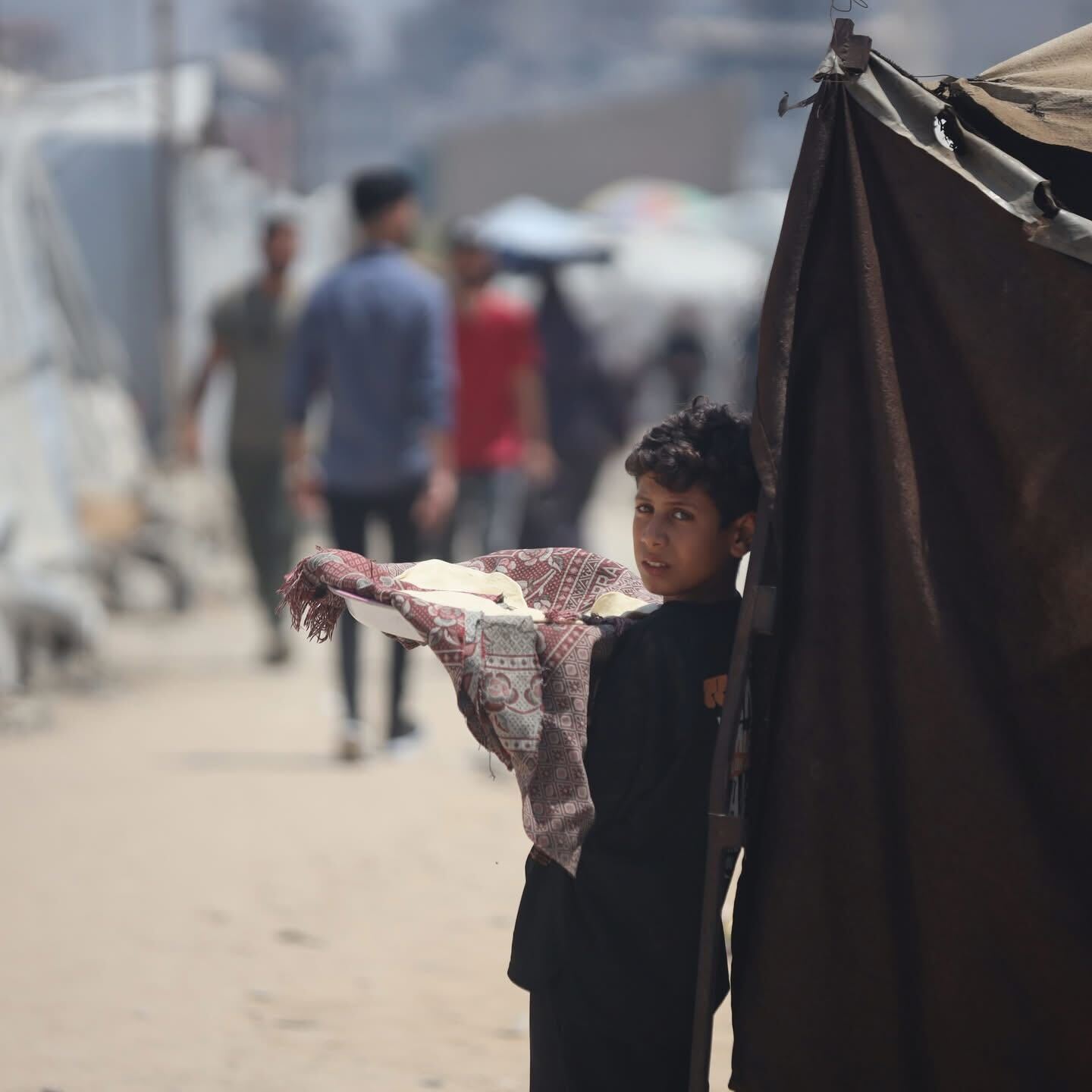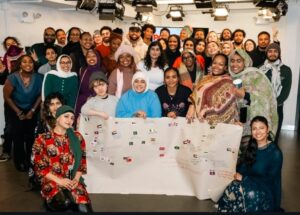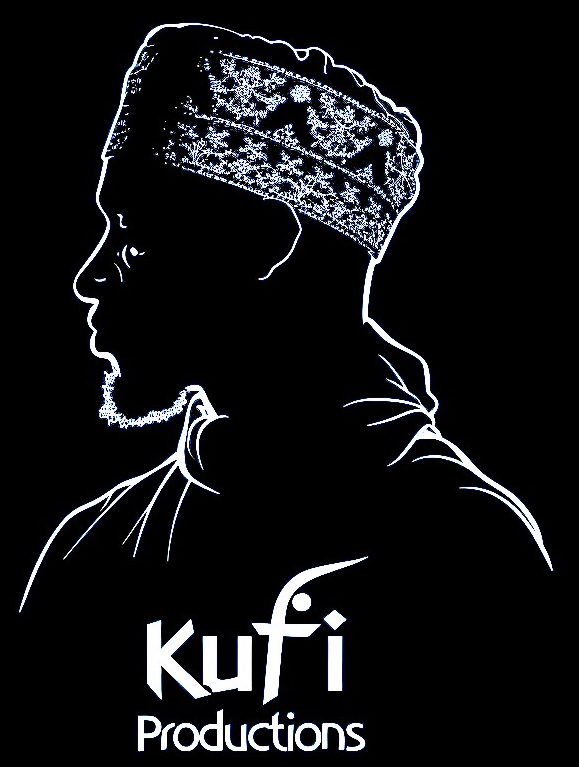It was five in the morning in the Al-Zaytoun neighborhood when Umm Mohammed Al-Najjar lit the wood stove in the courtyard of her house. Darkness surrounded the place except for the small glow of the fire that illuminated her tired face. She had no other choice — the gas pipe had run out two weeks ago, and electricity came for only an hour a day, if at all.
The sound of burning wood was the daily music of Gaza, a melody mixed with the scent of hot bread. But in the background, there was another tune — the buzzing of planes that never sleep.
Umm Mohammed placed the thin loaves of bread on the metal tray, and each time she flipped a loaf, she thought of her four children sleeping in the small room. Mohammed, her middle son, had not yet turned nine, but he already understood things he shouldn’t have at such a young age.
Mohammed entered barefoot, carrying a small bucket of water in his tiny hands. He spoke softly:
“Mom… the water in the tank is low.”
She nodded and tried to hide her worry, saying:
“That’s enough for today, my love. God willing, water will come tomorrow.”
But she knew tomorrow might bring nothing, and the pump filling the tank wouldn’t work without electricity.
As she continued baking, her heart suddenly trembled at a distant buzzing sound approaching closer. She froze, sweat gleaming on her forehead. Mohammed looked up at the sky, as if trying to see it before the strike. Heavy seconds passed, then a violent explosion shook the house, scattering some glass shards.
Umm Mohammed screamed: “Mohammed! Come quickly!”
He ran to her, and she hugged his small body tightly as smoke began to seep in through the window.
They hid inside the inner room with the other siblings. Outside, the sounds grew louder — screams, cries, and ambulance sirens, which Umm Mohammed knew weren’t enough to save everyone. She sat on the floor, holding her four children close, silently praying:
“Oh Lord… oh Lord, keep us safe.”After an hour of hell, silence returned. A heavy silence, as if the earth itself was bleeding. Umm Mohammed cautiously stepped into the courtyard. The bread had burned slightly but was still edible.
Looking at the blackened loaves, she whispered to herself: “The best bread… as long as we’re safe.”
She raised her head and saw a black cloud rising from a neighbor’s house. Her heart clenched — she knew it was Umm Hassan’s home, her neighbor for twenty years who had shared bread with her during hard times. She ran to the door but then remembered her children and hurried back to close the door tightly.
That evening, they all sat around the modest table: burnt loaves, olive oil with za’atar, and a single cup of tea to share. Umm Mohammed tried to instill a feeling of safety as she smiled:
“See? Mom baked the best bread in the world today!”
Mohammed laughed despite his fear and said:
“Even if it’s burnt… it smells better than the planes.”
Umm Mohammed wiped away her tears quickly so the children wouldn’t see. Outside, the night was heavy, pierced only by moonlight and the distant sound of the sea — a sea now besieged like the city’s people. But Umm Mohammed knew she had to stand firm, for tomorrow would come, even if it arrived on the wings of the wind.
Since the beginning of the aggression, her simple home had become a shelter for neighbors fleeing their houses. The small oven in the kitchen corner turned into a window of life amid the smell of gunpowder. The loaves she baked were more than food — they were a message of resilience.
“This is not just a bite,” she would whisper as she wiped sweat from her brow, “this is hope.” And amid the screams of planes and the roar of tanks, Umm Mohammed’s home remained a flame of warmth, telling the world that Gaza, despite its wounds, has a heart that beats with life.
That night, she fell asleep whispering to herself:
“We will keep baking life… no matter how burnt the bread becomes.”
The name Al-Najjar remains a testament that stones may demolish houses, but they cannot destroy the will of a baker determined to plant life in the heart of death.
Alaa Alburai – Kufi Production





